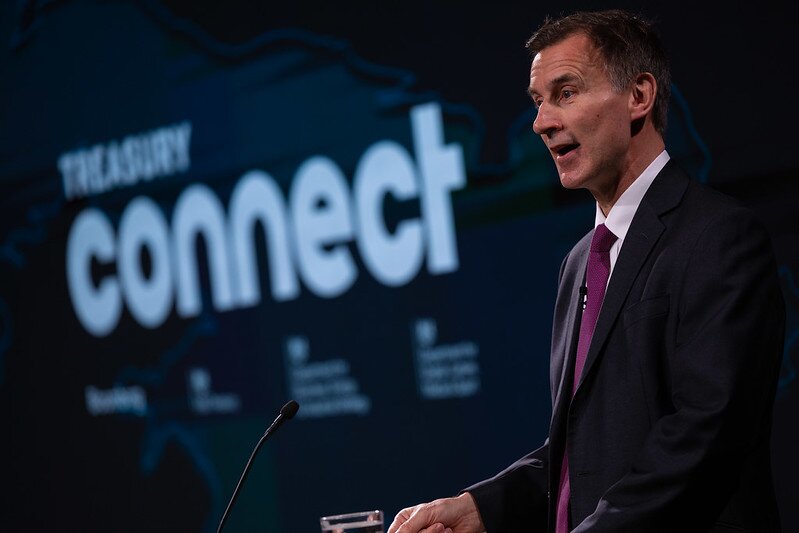Jeremy Hunt warns tax cuts 'unlikely' in spring Budget
Chancellor Jeremy Hunt has said it is “unlikely” the government will have the “headroom” to make any significant tax cuts in the spring Budget.
He told the BBC that though the country was in a “difficult patch” there would be “tremendous opportunities the other side”.
Pressure has been mounting on Hunt to cut taxes to stimulate the UK economy in the 15 March Budget and the hospitality industry has repeatedly called for a cut in VAT to help businesses survive.
In a speech on Friday (27 January) Hunt set out his plan to drive growth across the country and said: “[The] best tax cut right now is a cut in inflation.”
But he admitted his long-term ambition was to have “the most competitive tax regime of any major country”.
The Chancellor also set out plans to encourage thousands of people, such as those who have retired or are unable to work due to long-term illness, back into the workforce.
There are 300,000 fewer people in employment now compared to before the pandemic and around one-fifth of working-age adults are economically inactive.
Hunt’s speech came after figures showed the UK economy unexpectedly grew in November 2022, boosted by people going to the pub to watch the FIFA World Cup.
The largest contributor to growth came from food and beverage service activities, which grew 2.2% during the month.
UKHospitality chief executive Kate Nicholls urged Hunt not to overlook hospitality in the government’s plan for growth.
“[With] the right support and investment [hospitality] can deliver those results consistently. We can drive the economy forward and help put the brakes on inflation,” said Nicholls.
“Staffing is critical to that and the Chancellor was right to mention the need to get the economically inactive back into work. Hospitality has, literally, thousands of jobs available and a fantastic track record of creating careers – whether that’s an apprenticeship, a career change, or an opportunity to get back into work later in life.”
The Federation of Small Businesses (FSB) said Hunt’s speech had “all the right elements to build a successful, prosperous economy” but that the “proof will be in the pudding in the years ahead”.















